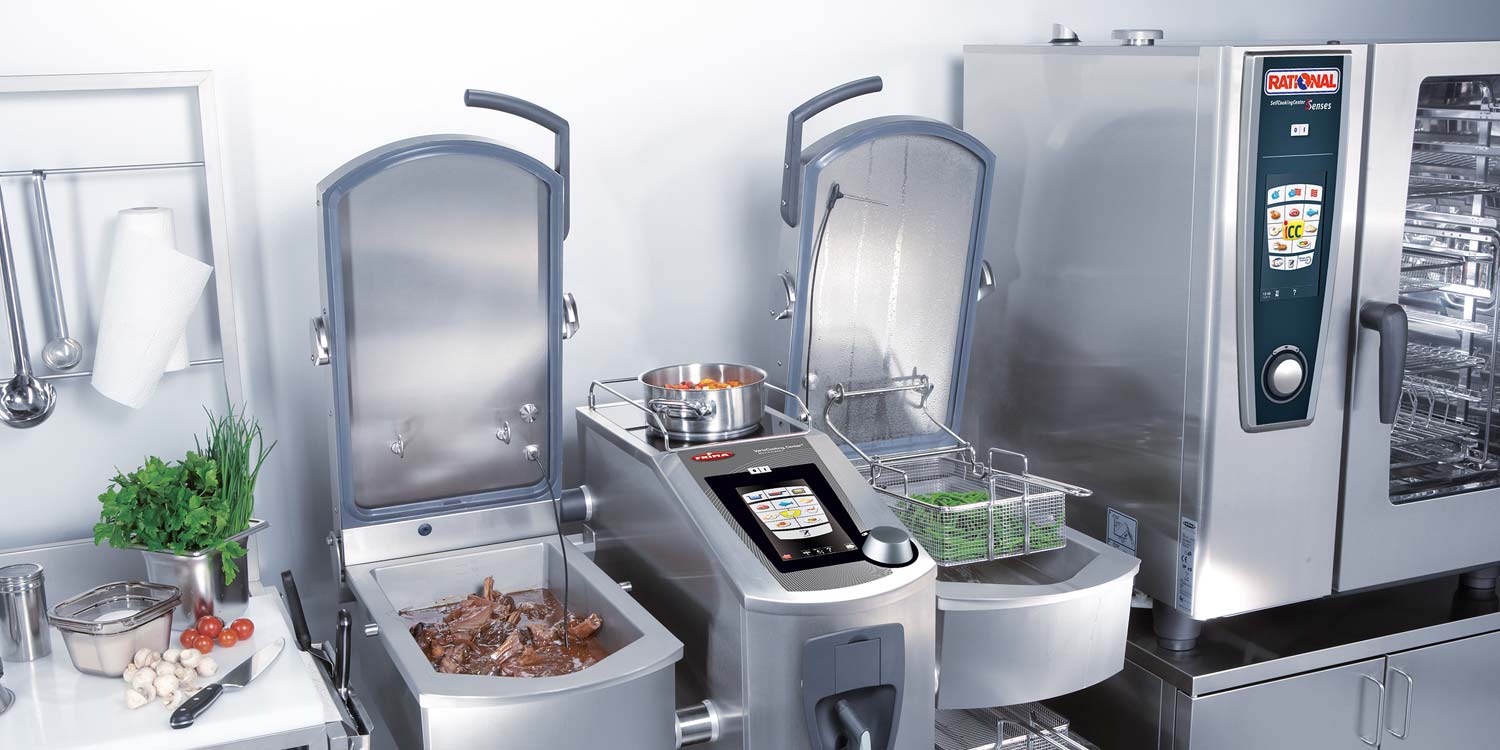Energy efficiency & your commercial kitchen
For our latest blog, we interviewed FCSI UK and Ireland education day speaker, Graham Kille of commercial kitchen appliance manufacturer Rational about the key specification criteria for energy efficient commercial kitchen equipment.
1. Graham, firstly why is it important for FCSI consultants to know more about this topic?
In a commercial kitchen, the efficient use of equipment will save energy and money while helping to contribute to a better managed catering operation and more pleasant working environment. If we look at energy consumption, cooking consumes the most energy in a commercial kitchen and accounts for between 24% and 30% of the energy used. Yet, in a traditional cooking environment as little as 40% of the energy consumed is used for cooking – the remaining 60% is wasted. Our role is to help commercial kitchens use energy more efficiently and by using the latest technology in our Rational equipment, we can deliver a much greater levels of energy efficiency than those delivered by traditional equipment.
2. What do FCSI consultants need to consider when specifying equipment?
There are three key considerations when specifying equipment: lifecycle costs, performance claim verification and flexibility.
When it comes to costs, it’s important to pay attention to the annual operating costs and not just the purchase price. Appliances which are more energy efficient may be more expensive to buy but they will undoubtedly deliver savings on energy, time and labour costs.
Performance claims also need to be examined. Ask yourself, does the manufacturer of the equipment I’m looking to specify have independently validated proof to back up energy efficiency claims. Look for certification from bodies such as HKI or from verification by universities. Reputable manufacturers should be able to provide independent evidence for the claims they make about energy efficiency.
Flexibility is also key in today’s commercial kitchen environment. Is the equipment you’re specifying future-proofed so it can deal with different tasks – reducing the need to buy more equipment, and also with the increasing changing trends in the foodservice sector? If it can’t then you’re client may have to change it more frequently than is required and incur the related costs of doing so.
3. So, what benefits should an energy efficient cooking appliance provide?
A well-designed energy efficient cooking appliance will provide much more than energy efficiency. It will also provide fast pre-heating and cooling, and be easy to clean, benefit from dynamic heat transfer to ensure responsive and precis heating, and deliver superior ergonomics and operational safety via the provision of durable contact surfaces, touch temperature and optimum sizing.
To deliver the best energy efficiency you require a combination of a heating system (responsive and quick) and intelligent control to deliver maximum energy efficiency.
To learn more about Rational, visit www.rational-online.com/en_gb



